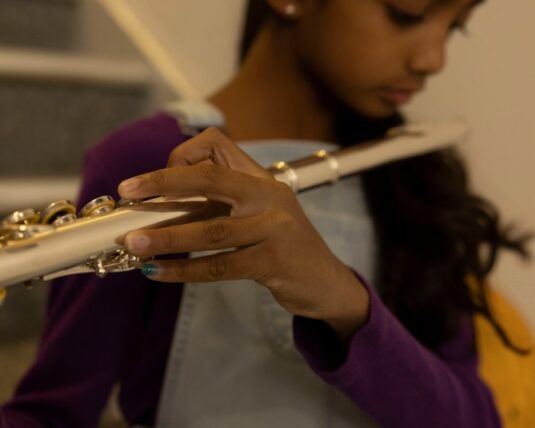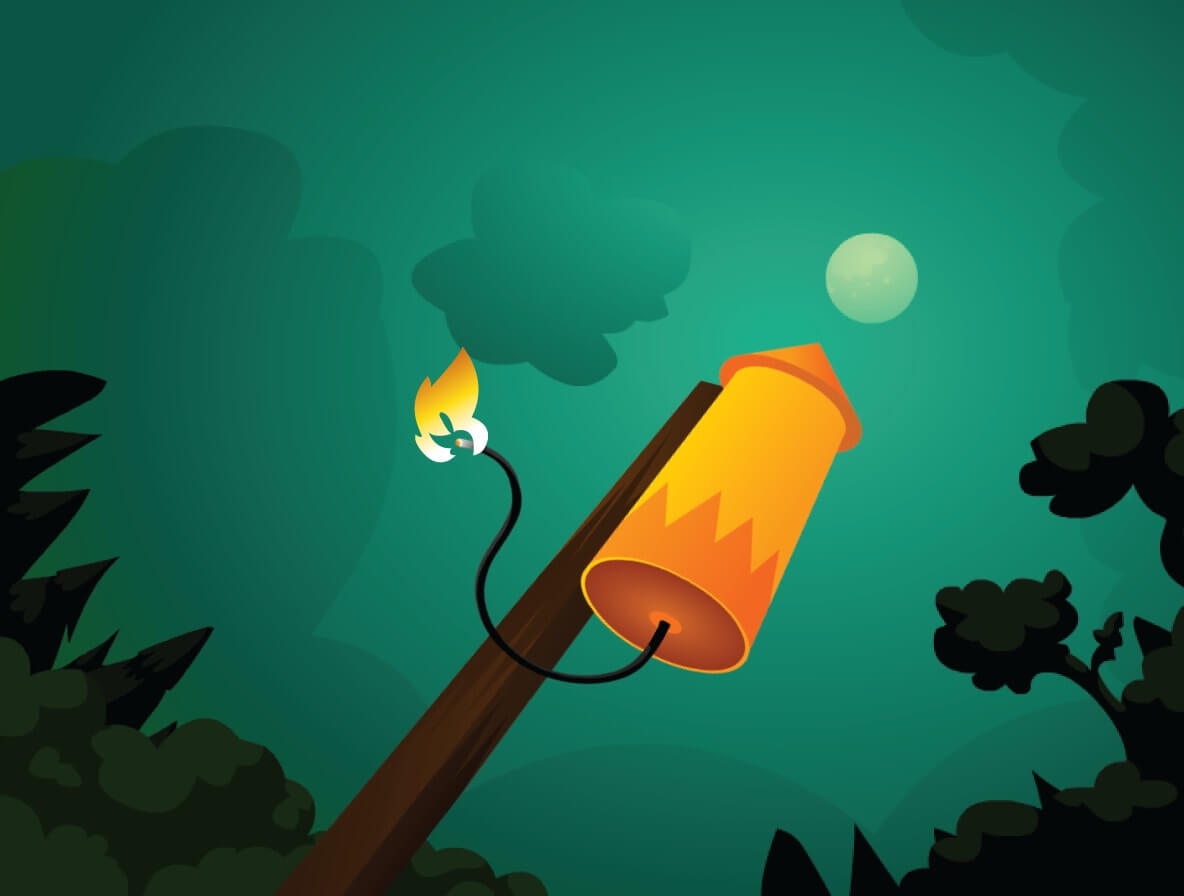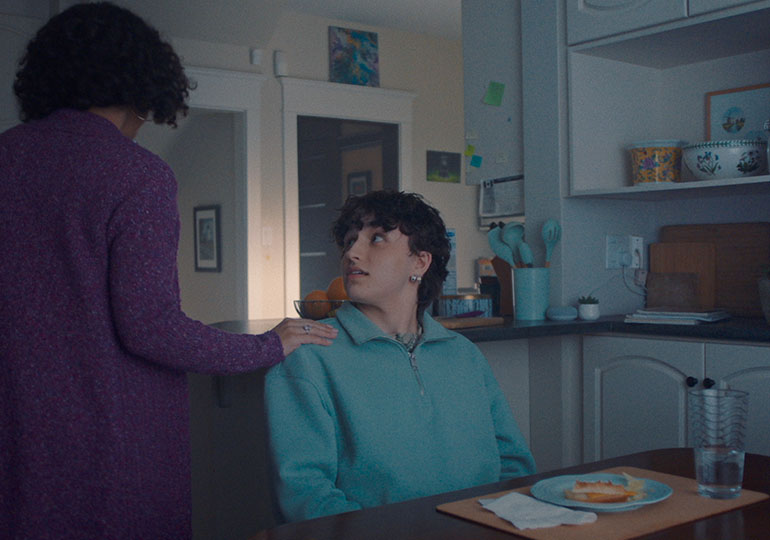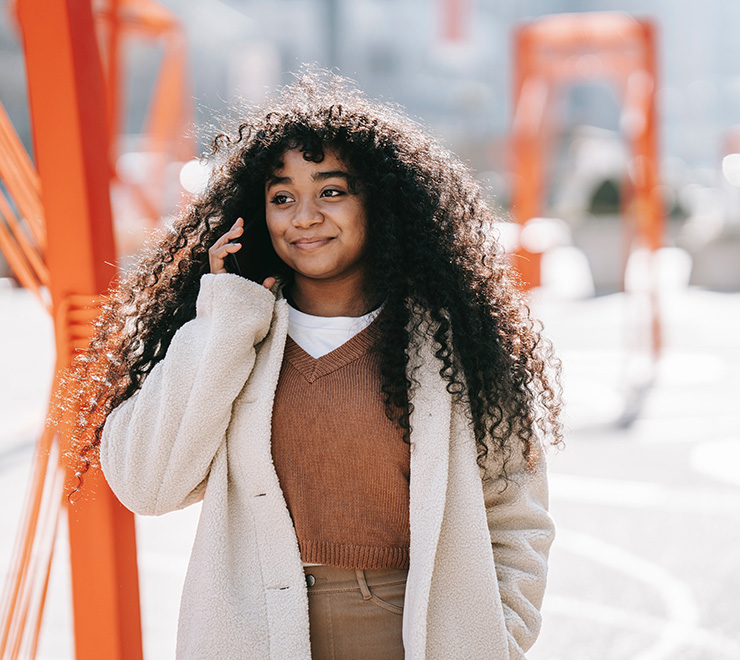It can be difficult to know how to help someone in an abusive relationship. Abusive behaviour is common within intimate relationships (although it’s never OK). It can affect anyone in or around the relationship, including caring friends, family members and others. Kids Help Phone is here to help you find support and resources if you think a friend or someone you care about is experiencing abuse in a relationship.
In this article, Kids Help Phone uses the term intimate relationships to refer to dating / romantic relationships or any sexual / non-sexual relationships that involve physical and / or emotional closeness / connectedness between people. However, you may have different definitions / use different words to describe the types of relationships in your life than the ones used in this piece. We support everyone in using whatever terms feel best for them.
If you think you may be experiencing abuse in a relationship, or you’re in need of support, you can connect with Kids Help Phone’s e-mental health services 24/7. If you feel like you’re in a crisis, emergency services are available across Canada. Mobile crisis support and other community services are also options in some areas. You can search Resources Around Me to find what’s best for you and available nearest your location.
How to help someone in an abusive relationship: 8 tips to consider
Kids Help Phone shares eight ways you can offer support to someone you’re concerned about, including:
Start a conversation
If you suspect someone you care about may be experiencing abuse from a partner, you can start by finding a private time and space to talk to them. You may ask them if they’re OK and / or if they need support. You can also talk with them about what you’ve observed, share what traits contribute to a healthy relationship and let them know you’re worried. You may find it helpful to prepare what you’d like to say ahead of time and learn tips for having tough conversations.
Here are some examples of what you might say:
- “I noticed your partner has asked you to stay home a lot this month. Is everything OK?”
- “I saw your partner checking your phone a lot. Are you OK with that?”
- “Did you know that a part of a healthy relationship is being able to say ‘no’ to things that make you uncomfortable?”
- “I heard your partner call you a name, is that something you’re OK with being called?”
- “I saw your partner encouraging you to do something you’ve never done before. How did you feel about that?”
- “I noticed your partner making fun of you in front of your friends. Is that OK with you?”
The person may or may not be willing / ready to talk about something like this with you, and they may be quick to change the subject. Knowing how to help someone in an abusive relationship can be difficult if they’re not comfortable talking about it. You can let them respond in their own time. You’ve started to let them know you’re paying attention, and that you’re open to talking about it if / when they’re ready.
Be there
If the person is ready to talk, you can show your support by listening to their story. You can do this without judgment by letting them know that no matter what, it’s never their fault and they’re never alone. It can be helpful to avoid saying things like, “Just leave!” Only they can make the decision to leave an abusive relationship, which can be difficult. You’re showing respect for their wishes by reminding them you’re there for them, even if they’re not ready to leave the relationship / accept support. Just knowing they have a trusted, caring person like you to talk to may help them figure things out.
Remain neutral
It can be helpful to think about what might be best for the person you’re worried about. While it’s OK to bring up what you think may be abuse and express your concerns, you can remain neutral by not saying hurtful things about the person’s partner. The person may still care about their partner, even if they’re experiencing abuse. One way you can help someone in an abusive relationship is to encourage them to evaluate their situation by making a list together of the “pros and cons” (what works and doesn’t work) in the relationship. This may help the person to recognize signs of abuse while you remain neutral.
Do research
You can search for services nearest your community that may be able to help someone in an abusive relationship (e.g. shelters, support groups, etc.). Resources Around Me can be a place to start searching for violence, abuse and legal support services. By sharing support options with the person, they may have a better understanding of their choices.
You can also learn more about addressing youth dating violence (info from PREVNet) and having difficult conversations about dating situations as you continue to explore how to help someone in an abusive relationship.
Get support
Although you may have supported the person by listening and talking to them, you may not have all of the information or know what to do next. If they’re seeking more support, you can encourage them to connect with a safe adult (e.g. a parent / caregiver, teacher, counsellor, spiritual leader, etc.) about what they’re going through or help them identify other support options.
You can also offer to go with the person to connect with someone if they’d like. A familiar person may make the experience more comfortable for them. Remember, it’s up to the person to decide if / when they’re ready to share their story and get help. If they’re not ready to talk, and you’re concerned about their relationship, you can chat on your own with a safe adult about ways forward, too.
Plan for safety
You can support the person in creating a safety plan to help them know where and how they can get help. It can be helpful for them to know whom they can talk to, where they can go and what they can do to find safer situations in the moment. They may be the most unsafe if they leave or plan to leave their relationship. Having a safety plan can help them be more prepared. If you need / the person needs help making a safety plan, Kids Help Phone’s e-mental health services are open across Canada 24/7.
Check in
It’s common for people in abusive relationships to be isolated from their friends / family. You can try to keep in contact with the person from time to time and ask how they’re doing. The person may not always want to talk, but checking in can show them that you care, you’re there for them when they’re ready to talk and you’re willing to listen.
Take time
Helping someone in an abusive relationship can be difficult, and every situation is different. Sometimes, the person may want your support, and other times, they may not want to talk about it. This could bring up many different emotions for you, so it may be helpful to take a break and be kind to yourself along the way, too. Kids Help Phone can support you in managing your thoughts and emotions. A few resources you might like to start with include:
You can also talk about your feelings with someone you trust if you’re having trouble navigating ways to help someone you care about. If you’re concerned about privacy, you can contact Kids Help Phone’s professional counsellors anonymously (you don’t need to tell them your name / the other person’s name, address, etc.) by phone or online chat to talk about the situation.
If you think someone you know is in an abusive relationship, you can remind them they’re never alone by starting a conversation, listening without judgment, helping them make a safety plan and more. Navigating an abusive relationship, even if it’s someone else’s relationship, can bring up a lot of thoughts and feelings. Kids Help Phone understands this, and we’re here for you. No issue is too big or too small to connect with us about.






















